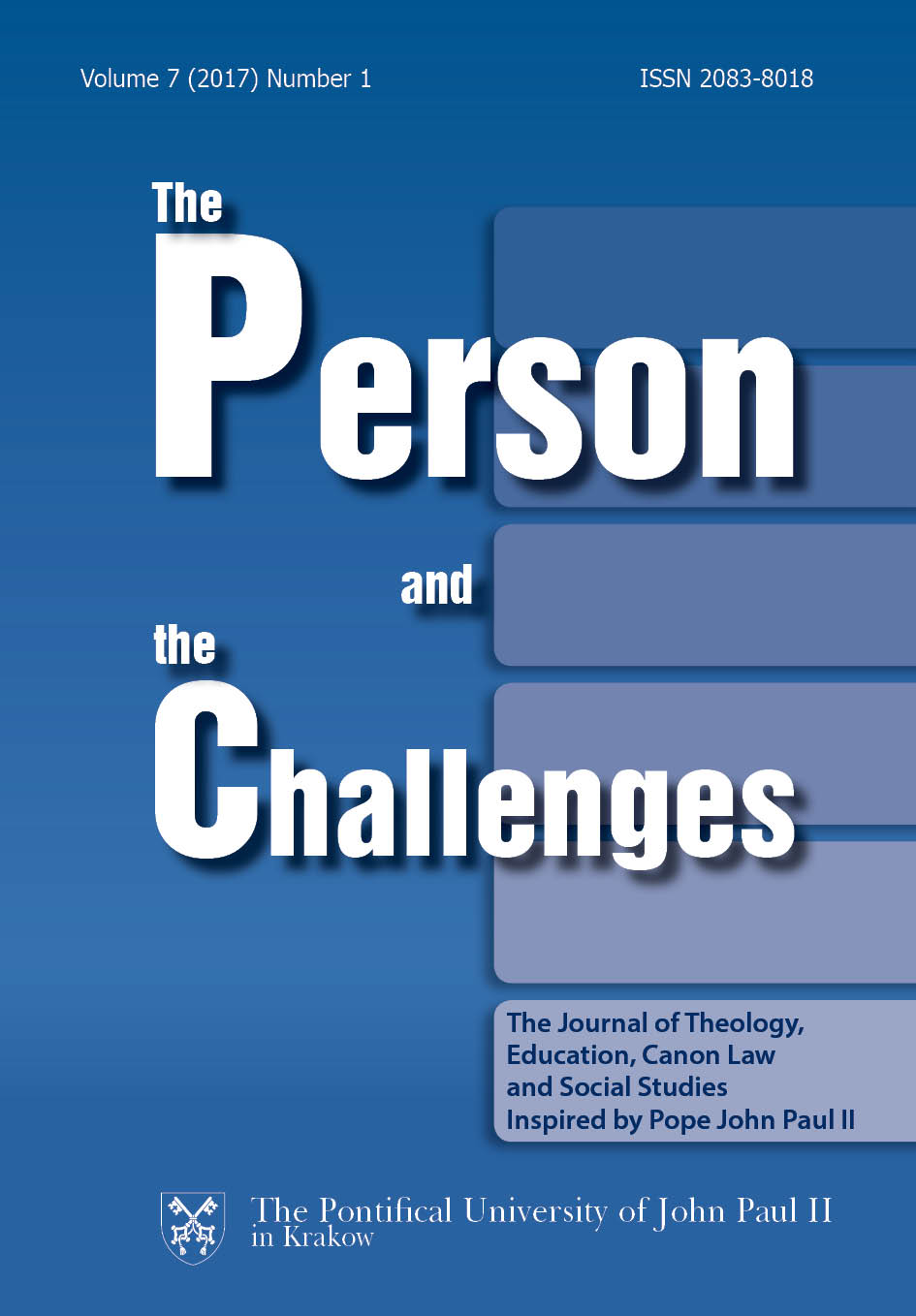Sensibilität und Motivation zum sozialen Handeln in der Auffassung Karol Wojtylas
DOI:
https://doi.org/10.15633/pch.1981Słowa kluczowe:
sensitivity, Karol Wojtyla, Acting Person, action of man, social actionAbstrakt
Sensitivity, as the ability to respond to internal and external stimuli, undoubtedly plays an important role in the social action of persons. Without this ability -as in the case of indifference- human being lacks a perception that is necessary in response to a specific emergency situation or a need. This article focuses on the teaching of Karol Wojtyla in his major work Acting Person, with a particular emphasis on the question of the motivation of human action. We want to reply to three basic questions related to the topic: Does this ability strengthens or weakens the culture of the Internet age, especially in Western European society? What is the primary motive of human action? Is sensitivity an essential motive and a factor of development of the person and society? What practical consequences we can draw from the teachings of the Krakow thinker about sensitivity? A person, as defined by Wojtyla, that is isolated, remains indifferent. Similarly persons who are hypersensitive hinders themselves to a mature participation in responsible love. The first quality (indifference) leads persons to flee from their duties. The second (hypersensitivity) leads persons to be overwhelmed by this challenge. The first we can describe as lack of feeling, the second as excessive compassion. The diagnosis of Wojtyla (it is more important to be than to have) remains very current and is an important stimulus in which direction to go to promote motivation for social action, and to build a society of communion of persons. Instead of an individualistic dominated competitive struggle of egos, we should try to realize a society in which the encounter of persons is characterized by mutual devotion in love.Bibliografia
Bauman Z., Życie na przemiał, Kraków 2004.
Beck U., Risikogesellschaft. Risikogesellschaft. Auf dem Weg in eine andere Moderne, Frankfurt am Main 1986.
Beck U., Vom Verschwinden der Solidarität, Berlin 1993.
Beck U. und J. Willms, Freiheit oder Kapitalismus, Frankfurt am Main 2000.
Piński J., Przekręt stulecia, Wrocław 2014.
Waleszczuk Z., Solidarność w nauczaniu Jana Pawła II (Solidariät in der Lehre Johannes Pauls II.), Kraków 2014.
Waleszczuk Z., Wolność osoby ludzkiej w ujęciu Karola Wojtyły i Immanuela Kanta (Freiheit der menschlichen Person bei Karol Wojtyla und Immanuel Kant), Wrocław (Breslau) 2014.
Waleszczuk Z., Solidarität nach Johannes Paul II, Bayreuth 2004.
Waleszczuk Z., Der Kategorische Imperativ als Grundstein der Menschenwürde und Form der Offenbarung Gottes bei Immanuel Kant und Karol Wojtyla, „The Person and the Challenges” 3 (2013) Nr 1, S. 7–42.
Waleszczuk Z., Gleichheit der Rechte und Pflichten im Denken Karol Wojtylas, in: W. Zuziak, J. Mysona Byrska (Hrgs.), Równość w życiu publicznym (Gleichheit im gesellschaftlichen Leben), Krakow 2012, S. 315–338.
Waleszczuk Z., Die Person bei Immanuel Kant und Karol Wojtyla, Breslau 2014.
Wojtyla K., Osoba i czyn oraz inne studia antropologiczne, Towarzystwo Naukowe KUL, Lublin 2000.
Wojtyła K., Liebe und Verantwortung. Eine ethische Studie, München 1981.
Pobrania
Opublikowane
Numer
Dział
Licencja
Prawa autorskie (c) 2017 Zbigniew Waleszczuk

Utwór dostępny jest na licencji Creative Commons Uznanie autorstwa 4.0 Międzynarodowe.
Autorzy publikujący w czasopiśmie udzielają jego wydawcy zgody o następującej treści:
- Autor zachowuje autorskie prawa majątkowe do utworu, a jednocześnie udziela wydawcy czasopisma zgody na jego pierwszą publikację w wersji drukowanej i wersji online na licencji Creative Commons Uznanie autorstwa 4.0 Międzynarodowe oraz zgody na wykonywanie opracowań, w tym przekładów.
- Autor ma możliwość udzielania zgody niewyłącznej na opublikowanie utworu w wersji, która ukazała się w czasopiśmie (np. zamieszczenia go w repozytorium instytucjonalnym lub opublikowania w książce), wraz z informacją o jego pierwszej publikacji w czasopiśmie.
- Autor może umieścić swój utwór online (np. w repozytorium instytucjonalnym lub na swojej stronie internetowej) jeszcze przed zgłoszeniem utworu do czasopisma.

